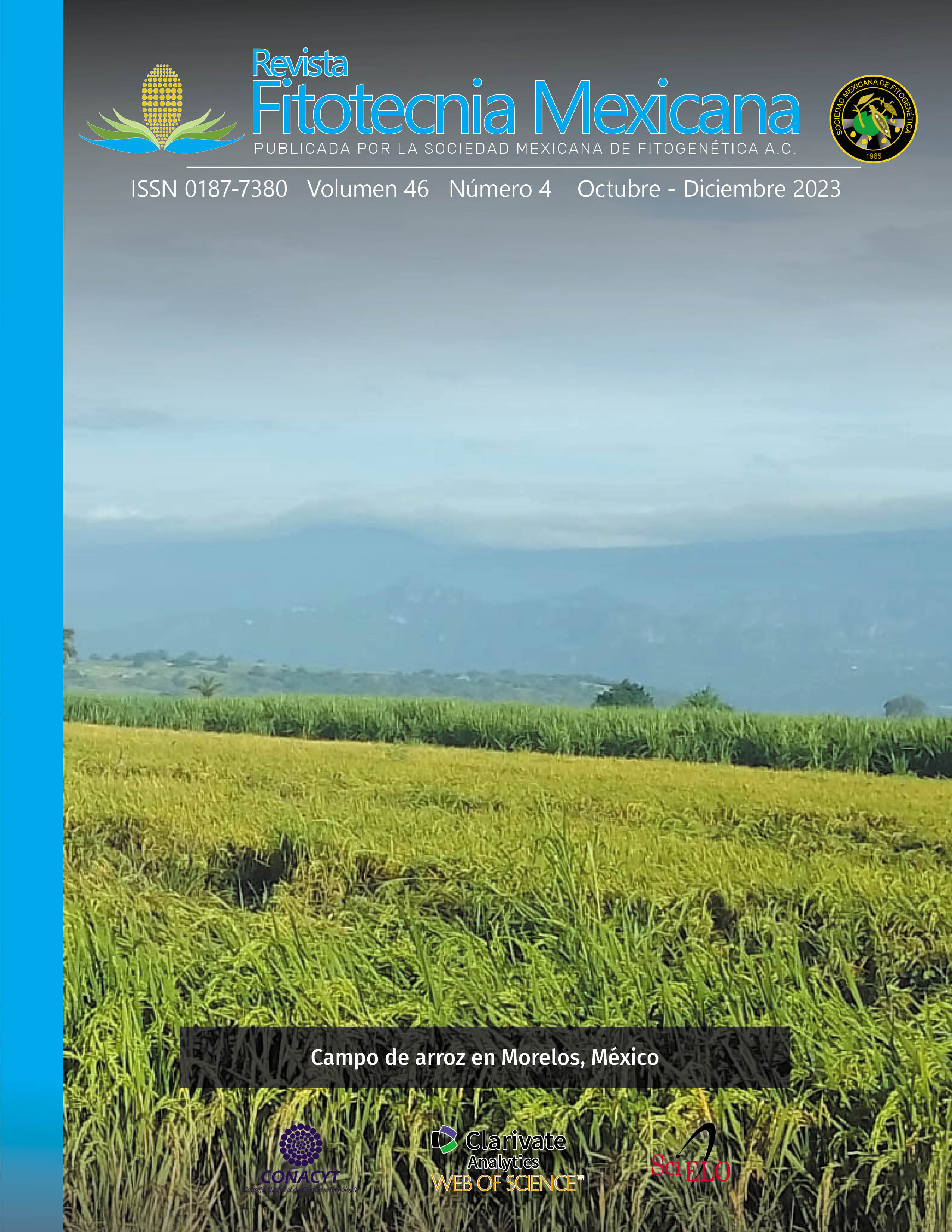IODINE BIOFORTIFICATION AND ANTIOXIDANT ACTIVITY IN EGGPLANT FRUITS (Solanum melongena L.)
Main Article Content
Abstract
Iodine (I) is an essential element in human health, its deficiency in food leads to insufficient intake of this element. The use of iodine in crop biofortification improves the nutritional quality of food. In this study the effect of potassium iodide (KI) applied to eggplant crop on iodine concentration and antioxidant activity in fruits was evaluated. Eggplant plants were grown at four doses of KI: 0, 30, 60 and 90 μM with eight replications under a completely randomized design. The data were analyzed by analysis of variance and comparison of means with the Tukey test. The variables evaluated were plant height, leaf area, number of leaves, aerial biomass, yield and fruit firmness. In fruits, total soluble solids (TSS), titratable acidity (TA), vitamin C, total flavonoids, total phenols, antioxidant activity and mineral concentration of Mg, Fe, Zn, Mn and I were evaluated. KI doses did not affect plant height, leaf number, aerial biomass and yield. The use of iodine in plants increased leaf area with doses of 60 and 90 μM. Doses of 30 and 60 μM decreased SST concentration in fruits, while that of 90 μM decreased phenols concentration. Doses of 60 and 90 μM increased antioxidant activity by 34 %, and that of 90 μM increased Zn content by 25 % and Mn by 34 %. Iodine concentration increased from 64 to 90 % with all doses of KI used. Using iodine as a biofortifier in eggplant improves the nutritional quality, because it increases its concentration in the fruits, without affecting the growth of the crop.

